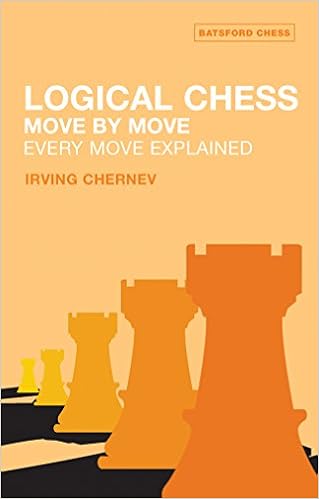
Ok, firstly, I'm not rated 1200, I'm around 1800. As such, I am reading this book for the purpose of being able to recommend it to some beginner players.
I do think it's great, Irving Chernev-- as usual-- is great, and the format of this book is superb for beginners or advanced beginners.
That being said, it's important to note that computers have changed everything in how we must study chess.
Case in point: Game 1 of this book, "von Scheve - Teichmann, Berlin 1907".
Now a general rule is that when you come across a game between a player you've never heard of versus a great grandmaster you have heard of, odds are good that the GM you've heard of wins. This game is no exception, with Teichmann threatening checkmate two different ways upon move 17, and von Scheve, who must have been understandably intimidated, resigns. End of story for Game 1, as far as this book goes.
But the thing is that Chernev selected this game in order to demonstrate the vital chess concept of good development and counter-play against weaker development. Yet in this game, my "Spider Sense" told me that Black was playing a little too ambitiously against said lagging development, and Black's king-side attack is precise but hardly dominating. What's more, the final move of this particular game, as played in Berlin in 1907, Black's 17th move, is not a forcing move. White thus has free reign on move #18. Yes, things look bleak with Teichmann's twin mate threats (as described by Chernev), but he does have available the move 18. Bc4 x f7+ (Check!). So is it a little pre-mature to resign?
Well, I plugged Game 1's final position into Shredder 2600 (Droid phone app, Grand Master strength) and played 18. Bc4 x f7+, and here's what Shredder found from there (with Shredder 2600 playing both sides):
18 Bxf7+
18……………… Ke7
19 Bg5+
19……………… Kf8
20 Bf4
20……………… Qxf4
21 Bh5
21……………… Nf6
22 Rxf2
22……………… Nxh5
23 Qd5
23……………… Qe3
24 Raf1
24……………… Ng3+
25 Kg2
25……………… Qxe4
26 Qd4
26……………… Kg8
27 Kxg3
27……………… Qg6+
28 Kh2
28……………… c6
29 Nh4
29……………… Qh5
30 Kg1
30……………… Qg5+
31 Rg2
31……………… Qe5
32 Qf2
32……………… Qc5
33 Nf5
33……………… Qxf2+
34 Rfxf2
34……………… g6
35 Nxd6
35……………… Rd8
36 Nf7
36……………… Rd7
37 Nxh8
37……………… Kxh8
38 Rd2
38……………… Rf7
39 Rd8+
39……………… Kg7
40 Rgd2
40……………… Rf5
41 R8d7+
41……………… Kh6
42 b4
42……………… Rf3
43 Rxb7
43……………… Rxc3
44 Rh2+
44……………… Kg5
45 Rhxh7
45……………… c5
46 b5
46……………… axb5
47 Rxb5
47……………… Kf4
48 a6
48……………… Rc1+
49 Kg2
49……………… Rc2+
50 Kf1
50……………… Ra2
51 a7
51……………… Ra1+
52 Ke2
52……………… Ra2+
53 Kd3
53……………… g5
54 Rb8
54……………… g4
55 a8=R
55……………… Rxa8
56 Rxa8
56……………… g3
57 Rg8
57……………… g2
58 Rxg2
58……………… Kf5
59 Rf2+
59……………… Ke5
60 Rh5+
60……………… Ke6
61 Rh6+
61……………… Ke7
62 Kc4
62……………… Kd7
63 Rf7+
63……………… Ke8
64 Rhh7
64……………… Kd8
65 Rf8#
Yes, White won.
Bottom line: It's a great book alright, but it was written back in the days when computers comprised a room full of vacuum tubes, and had maybe 1 KB of memory (less than enough to hold just my Amazon review here). Chernev, like every other author of his time, plus and minus several decades, had no access to a "Grand Master in his pocket" like my handy dandy Droid phone. And he, like von Scheve in this game, were a little too awed by even great masters like Teichmann.
But now we know better. It's a whole new world.
Game On!!
No comments:
Post a Comment